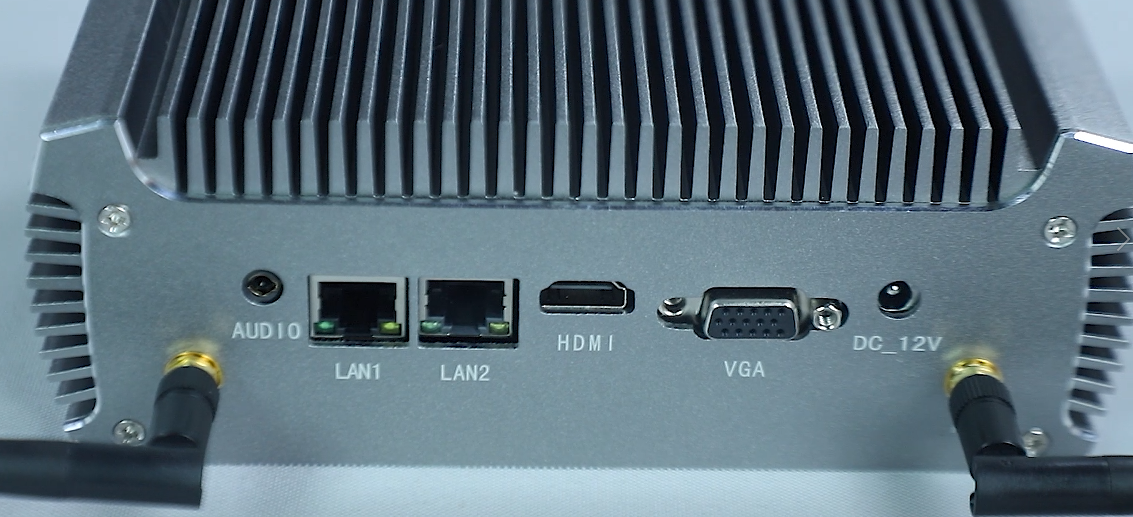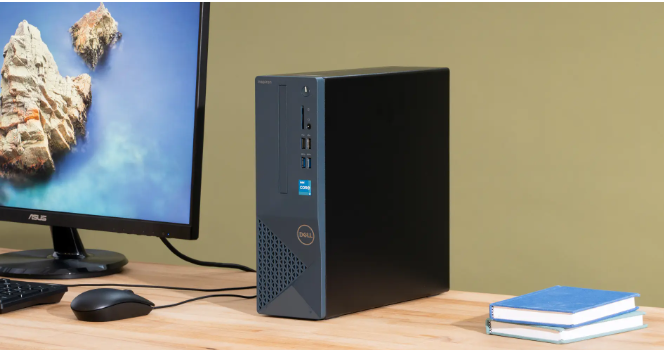In today's fast-paced business world, technology plays a crucial role in determining operational efficiency, productivity, and long-term success. One area that has gained significant attention is the choice between industrial mini PCs and traditional desktop computers. While traditional PCs have been the go-to option for most businesses for years, industrial mini PCs are quickly making their mark, particularly in industries that require specialized, compact, and rugged computing solutions. But which one is right for your business?
Industrial mini PCs are compact, durable computing systems designed to withstand harsh environments while providing powerful performance. They are often used in industries like manufacturing, healthcare, retail, and automation, where reliability, space efficiency, and extended operational life are essential. Unlike traditional desktop PCs, which are designed for standard office environments, industrial mini PCs are engineered for extreme conditions, such as high heat, humidity, and dust.
Key Features of Industrial Mini PCs:
Compact and Rugged: Smaller form factor with a robust build designed for challenging environments.
Energy-Efficient: Consumes less power compared to traditional PCs, making them ideal for applications that require constant operation.
Fanless Operation: Many industrial mini PCs come without fans, reducing the risk of mechanical failure and dust buildup.
Customization Options: Highly customizable for specific industrial applications, such as digital signage, automation, and IoT integration.

Traditional PCs, on the other hand, are standard desktop computers typically used in office environments. They come in various sizes but are generally larger than industrial mini PCs and are designed for general-purpose computing. These computers are versatile and can be used for everything from data processing and gaming to multimedia tasks and web browsing.
Key Features of Traditional PCs:
· Larger Form Factor: Larger in size, which may require dedicated desk space.
· Power-Hungry: Higher power consumption due to more complex components and cooling systems.
· Versatile Usage: Suitable for a broad range of tasks, but not always optimized for rugged or continuous 24/7 operation.
· Cooling Systems: Typically rely on active fans for cooling, which can wear out over time.

To help you make the best decision for your business, let’s take a look at a detailed comparison of industrial mini PCs and traditional PCs based on various important factors.
|
Factor |
Industrial Mini PCs |
Traditional PCs |
|
Size and Space |
Compact and space-saving, ideal for small spaces or embedded environments. |
Larger and bulkier, requiring more desk space. |
|
Performance |
Designed for high reliability, rugged performance in industrial applications. |
High-performance options for general computing tasks. |
|
Reliability |
Built for continuous 24/7 operation in harsh conditions (temperature, humidity, dust). |
Less durable and may not withstand extreme environments for long periods. |
|
Power Consumption |
Energy-efficient, consumes less power. |
Consumes more power, may require frequent cooling. |
|
Cooling |
Fanless designs available, reducing the risk of mechanical failure. |
Active cooling systems, prone to wear over time. |
|
Customization |
Highly customizable for specific industrial needs (I/O ports, mounting options). |
Limited customization for specific tasks or applications. |
|
Price |
Typically higher initial cost, but offers better long-term ROI due to durability. |
Lower upfront cost, but can lead to higher operational costs over time. |
Choosing between an industrial mini PC and a traditional PC depends largely on the specific needs of your business. Here are some key considerations:
If your business operates in an environment with limited space—such as a factory floor, retail kiosk, or embedded system application—industrial mini PCs are the obvious choice. Their compact form factor allows them to be placed almost anywhere, and they can be mounted in tight spaces, unlike traditional PCs that require more desk or rack space.
If your business operates in a harsh environment with high temperatures, dust, or humidity—like in industrial manufacturing, automotive sectors, or outdoor settings—industrial grade pc is designed to endure these conditions. Traditional PCs, in contrast, are generally not suited for these environments and may suffer from overheating or component failure.
For businesses that need systems running 24/7 or that want to reduce operational costs, industrial grade pcs are more energy-efficient. These systems consume less power, which not only saves on electricity bills but also results in lower cooling and maintenance costs. Traditional PCs tend to consume more power, especially when equipped with high-performance components.
If you need high computational power for tasks like graphic design, video editing, or gaming, traditional PCs are likely the better option. However, for applications that require reliability, constant uptime, and specialized hardware configurations (such as automation or IoT systems), industrial mini PCs are far more suited.
Since industrial mini PCs are designed for continuous 24/7 operation, they typically offer a longer lifespan than traditional PCs. This can translate into better long-term value for businesses that need reliable systems running around the clock. Traditional PCs, while reliable for office tasks, may not perform as well in continuous, high-demand environments.
Ultimately, the choice between an industrial mini PC and a traditional PC comes down to your specific business needs. If your business requires specialized, space-efficient, and reliable systems that can handle extreme conditions, an industrial mini PC is likely the best choice. These compact systems offer ruggedness, energy efficiency, and extended uptime—qualities that are essential in industries like manufacturing, logistics, healthcare, and automation.
On the other hand, if you need a versatile, cost-effective solution for general office tasks or multimedia processing, a traditional PC might be more suitable.
At BVSIPC, we specialize in high-performance industrial grade pc that are perfect for businesses looking to boost efficiency, reliability, and scalability. Take advantage of our limited-time offer and get a discount on our top-rated industrial mini PCs today!

Click to confirm
Cancel